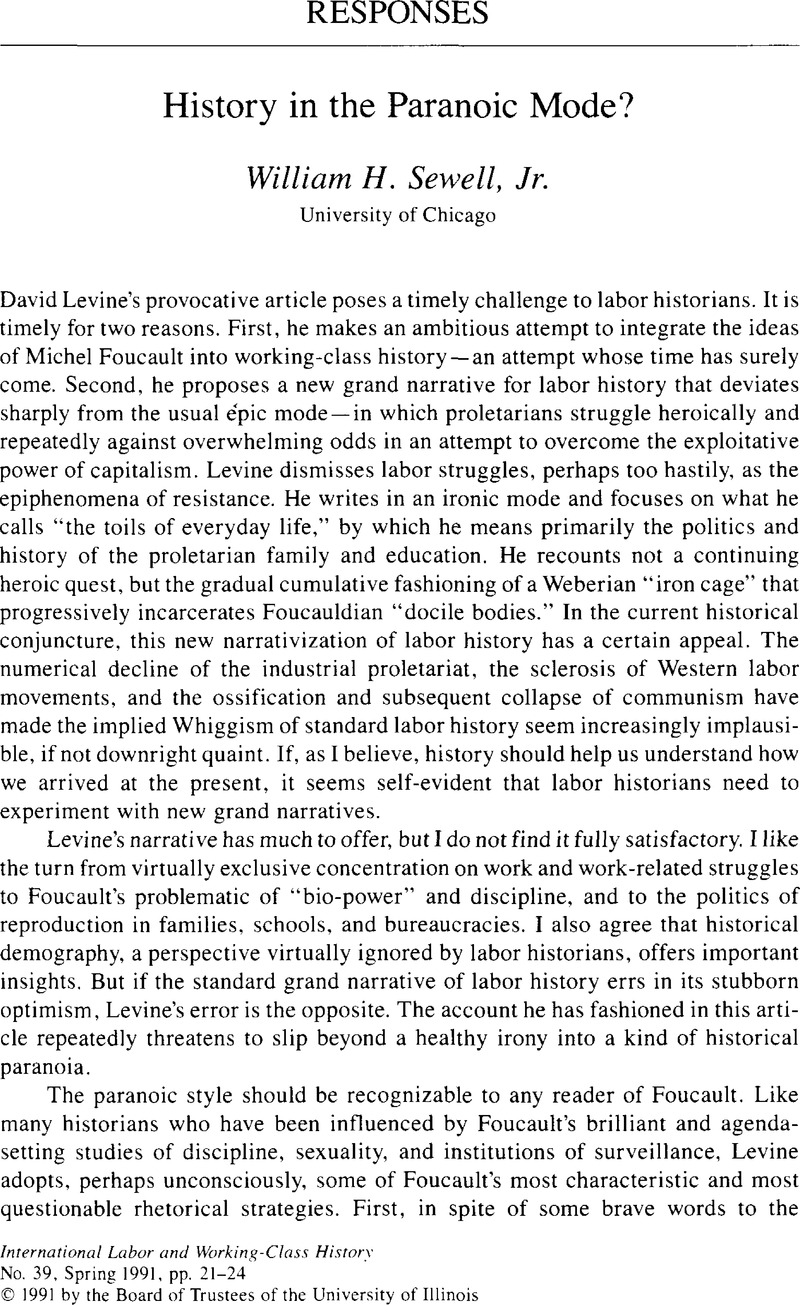Article contents
History in the Paranoic Mode?
Published online by Cambridge University Press: 16 December 2008
Abstract

- Type
- Responses
- Information
- Copyright
- Copyright © International Labor and Working-Class History, Inc. 1991
References
NOTES
1. Willis, Paul, Learning to Labor: How Working Class Kids Get Working Class Jobs (New York, 1977)Google Scholar; Burawoy, Michael, Manufacturing Consent: Change in the Labor Process under Monopoly Capitalism (Chicago, 1979)Google Scholar.
2. Dreyfus, Hubert L. and Rabinow, Paul, Michel Foucault: Beyond Structuralism and Hermeneutics, 2nd ed. (Chicago, 1983), 187Google Scholar.
3. Here I would recommend as a model of historical process not Foucault's Discipline and Punish, but William Reddy's account of the historical emergence of wage-labor relations—surely one crucial modern disciplinary complex. In Reddy's telling, the wage-labor relation arose not from any single or univalent discourse or practice, but as the historical product of complex and contradictory strivings of laborers, factory owners, government officials, and political economists. Reddy, William M., The Rise of Market Culture: The Textile Trade and French Society (Cambridge, 1984)CrossRefGoogle Scholar.
- 4
- Cited by


